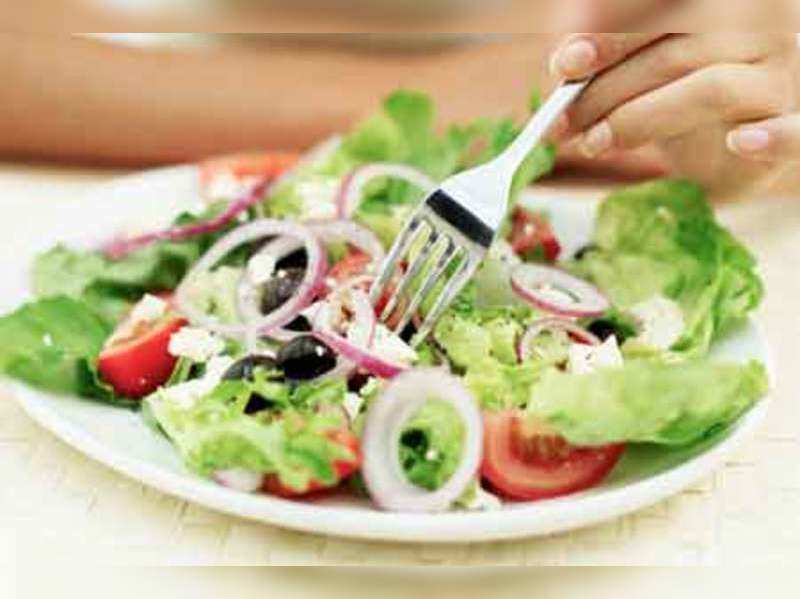Essay - Live to Eat or Eat to Live? Healthy Diets Vs. Favorite Dishes.

Eat smart, live healthy
The key to one’s well-being is a proper, balanced diet You are what you eat. There’s much wisdom in this simple sentence. And for that you don’t have to shell out thousands. We might think we are eating right and doing everything perfect to stay healthy. But thanks to modern lifestyle and all the stress that comes with it, toxins can build up in our bodies and eventually result in common health complaints.
Acculumation of toxins and stress can result in an imbalance of mental and physical well-being. The benefits of a healthy diet are immense
-A stronger immune system
-Increased stamina
-Glowing skin
As dietcians maintain, the fundamentals remain the same in eating smart. Stick to eating healthy, fibre-rich foods such as fruits, vegetables and whole grams. Don’t stay hungry for a long time as you end up eating more in the end. Take small meals but at regular intervals. The golden rule is to have a hearty breakfast. Limit your intake of sugar, red meat and white flour like maida. Another rule is that in addition to healthy eating, remember to stay hydrated with a regular intake of water. Limit your tea and coffee intake more so when you work in an air-conditioned environment. If you want your share of comfort food, remember to gorge on foods that contain vitamin B. It can help you with your generous supply of feel-good fibres, so that you feel less moody, depressed or irritable. Don’t wrack your brains as it is easy to get your share of vitamin B through food items like whole wheat bread, almond, tuna, orange juice and poultry.
================
Eating this food group can help you live longer: Study
As per a new study published in the journal Circulation, people who eat a Western diet rich in processed meats, refined sugars and fatty red meat are at 21 per cent increased risk of mortality and 22 per cent higher risk of cardiovascular diseases as compared to people who follow a prudent diet including legumes, whole grains, fish and vegetables
It is quite literally true that we are what we eat. What we eat every day decides if we will have a long and healthy life or the one plagued with the risk of chronic diseases.
As per the new study, prudent diet followers were safer from mortality and heart disease risk by 17 per cent and 28 per cent respectively.
The link between diet and longevity
Experts and researchers have been pressing on the fact that what you eat can be the deciding factor when it comes to our overall health. For the new study, experts examined regions where people lived for the longest. And it was then found out that there was one food group that they all consumed, which can be the secret behind their long life.
These areas are known as blue zones and have often been examined by experts for similarities in lifestyle and eating habits. One common thing they all consume is legumes (beans).
What is the blue zone diet?
Blue zone diets are plant-based diets, where 95 per cent of daily food intake comes from vegetables, fruits, grains and legumes. People in these zones typically avoid meat, dairy, sugar foods and beverages. These people also do not consume processed foods.
How can legumes promote longevity?
After multiple studies, a Blue Zone diet was developed, which is claimed to help people live a longer life.
People residing in these areas have one full cup of beans every day. Beans are rich in protein, fibre and have very low sugar and fat. The protein helps to maintain weight, build muscles, fibre helps in keeping you fuller for longer, lowers the risk of hypertension, digestive distress, dementia, diabetes and depression. Beans also have a powerful antioxidant called polyphenol, which researchers have found can help in healthy ageing.
Three most healthy beans
Kidney beans
Kidney beans, popularly called rajma is full of protein, fibre and iron. A study found that consuming dark red kidney beans and rice together can help in keeping the blood sugar level stable.
Kidney beans with rice are also the base for many traditional dishes, so many people find it easy to follow this type of healthy diet.
Chickpeas
One cup of cooked chickpeas has 14.53 grams of protein, 12.50 grams of fibre and 4. 74 milligrams of iron. Chickpeas can be added to salads and people also have them as roasted snacks.
Chickpeas help reduce the risk of heart disease and cancer. It also helps maintain blood sugar levels and a healthy weight.
Black beans
Black beans are commonly used in South and Central American cuisine. They are a common ingredient in rice, beans dishes and burritos. One cup of cooked black beans has 15.24 grams of protein, 15 grams of fibre and 3.61 grams of iron. Black beans are also good in maintaining blood sugar levels.





No comments:
Post a Comment